Wood height 32in (81.2cm) Provenance Lieutenant Crayssac, Inspector of the Colonies under the command of Colonel Dodds, ca. 1892 Thence by descent through family Private Collection, France Delorme-Collin du Bocage, Paris-Drouot, 20 June 2007 (lot 85) Private Collection, acquired at the above Private Collection, California Behanzin became the king of Dahomey on January 1, 1890 following the death of his father, King Glele. He is mostly remembered as the monarch who resisted colonial invasion by France of his territory for nearly two years. The French were putting pressure on the king to open up Dahomey's port town of Cotonou in order to exploit the resources of neighboring Niger. Conflict eventually developed in 1891 when French and Dahomey troops clashed. Behanzin was able to defeat the French army and a peace treaty was signed and his authority remained in place. However, on November 17, 1892, French Colonel Dobbs arrived with his troops at the palace of Abomey. A month later Behanzin was formally exiled. Cf. Sotheby's, Paris, 3 December 2004, lot 62 for a very similar example belonging to King Behanzin, sovereign of Abomey, 1889-1894, collected by Colonel Dodds in 1892 Suzanne Preston Blier notes, "Dahomey kings frequently commissioned a number of stools, each having a special name. This work's [as in the example being presented] unusually large scale reflects a view of the Dahomey king as someone of almost superhuman size." (Royal Arts of Africa, Laurence King Publishing, London, 1998, p. 116) This historically important throne, carved from one piece of wood, consists of an elegantly curved seat with vertical sides accented in the center with two rows of an incised diamond design, the seat is supported by a tall, rectangular, openwork checkerboard panel on the front and back, the sides with four rectangular slots, the square base with four steps; beautiful, rich, dark-brown patina.
Wood height 32in (81.2cm) Provenance Lieutenant Crayssac, Inspector of the Colonies under the command of Colonel Dodds, ca. 1892 Thence by descent through family Private Collection, France Delorme-Collin du Bocage, Paris-Drouot, 20 June 2007 (lot 85) Private Collection, acquired at the above Private Collection, California Behanzin became the king of Dahomey on January 1, 1890 following the death of his father, King Glele. He is mostly remembered as the monarch who resisted colonial invasion by France of his territory for nearly two years. The French were putting pressure on the king to open up Dahomey's port town of Cotonou in order to exploit the resources of neighboring Niger. Conflict eventually developed in 1891 when French and Dahomey troops clashed. Behanzin was able to defeat the French army and a peace treaty was signed and his authority remained in place. However, on November 17, 1892, French Colonel Dobbs arrived with his troops at the palace of Abomey. A month later Behanzin was formally exiled. Cf. Sotheby's, Paris, 3 December 2004, lot 62 for a very similar example belonging to King Behanzin, sovereign of Abomey, 1889-1894, collected by Colonel Dodds in 1892 Suzanne Preston Blier notes, "Dahomey kings frequently commissioned a number of stools, each having a special name. This work's [as in the example being presented] unusually large scale reflects a view of the Dahomey king as someone of almost superhuman size." (Royal Arts of Africa, Laurence King Publishing, London, 1998, p. 116) This historically important throne, carved from one piece of wood, consists of an elegantly curved seat with vertical sides accented in the center with two rows of an incised diamond design, the seat is supported by a tall, rectangular, openwork checkerboard panel on the front and back, the sides with four rectangular slots, the square base with four steps; beautiful, rich, dark-brown patina.

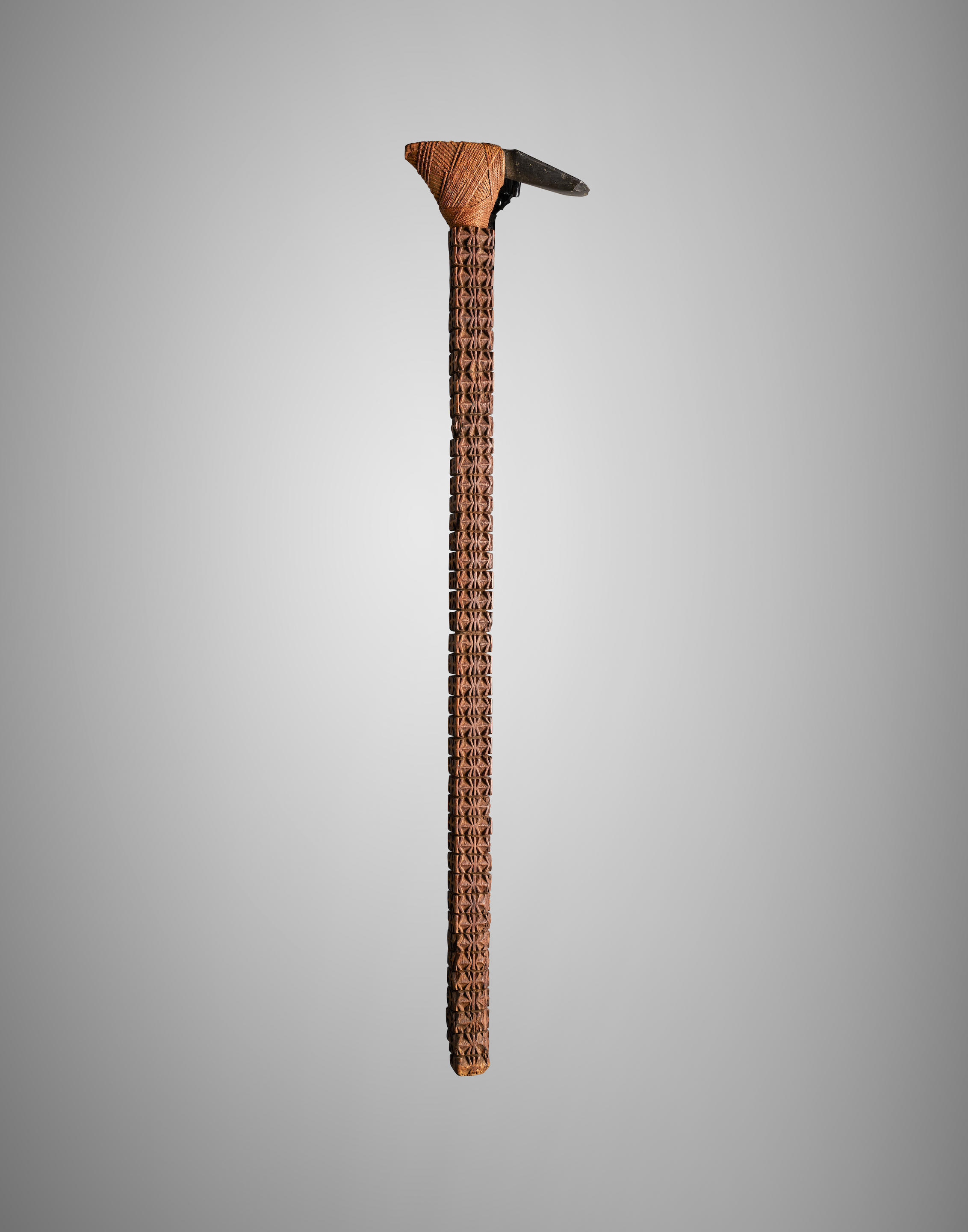
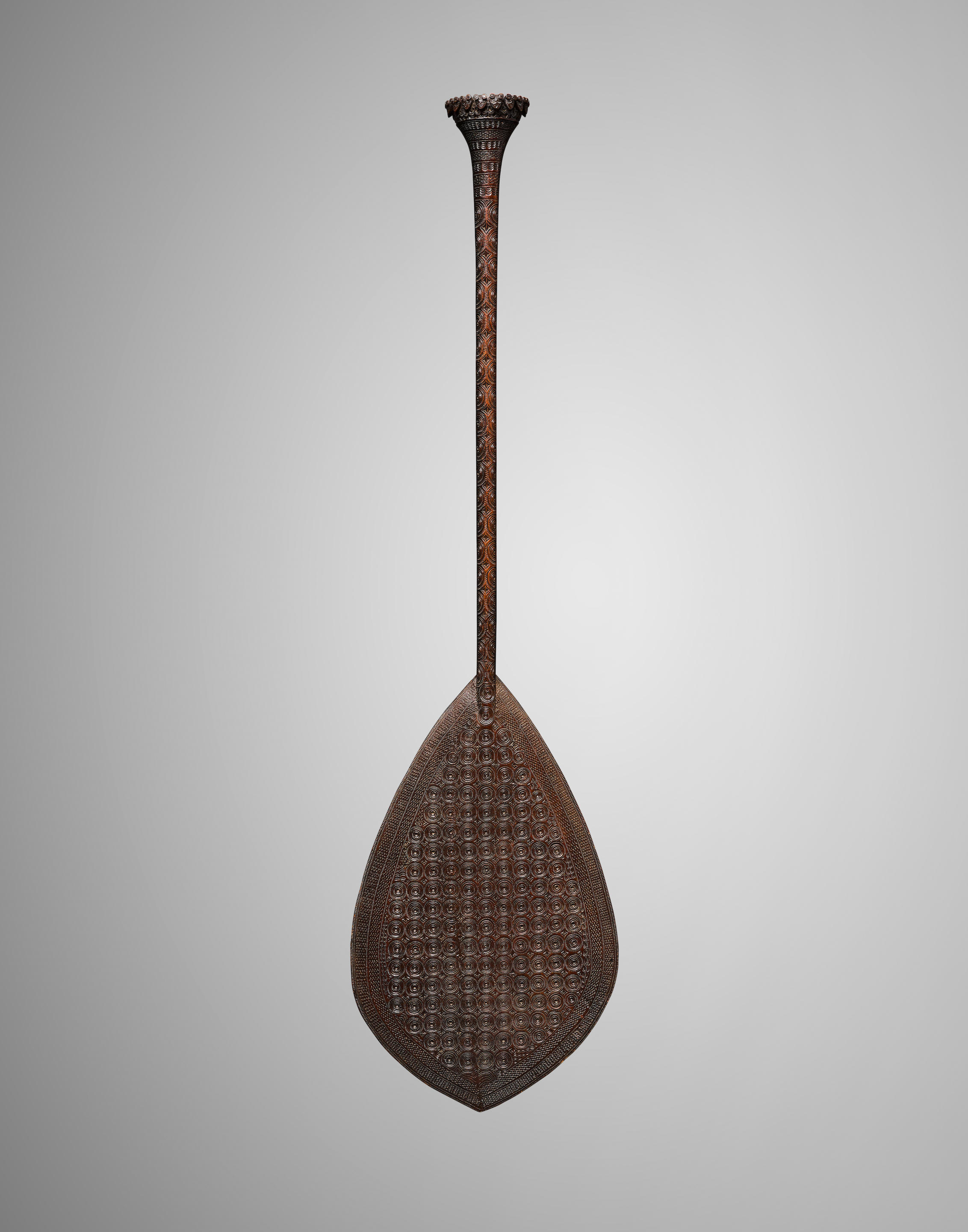

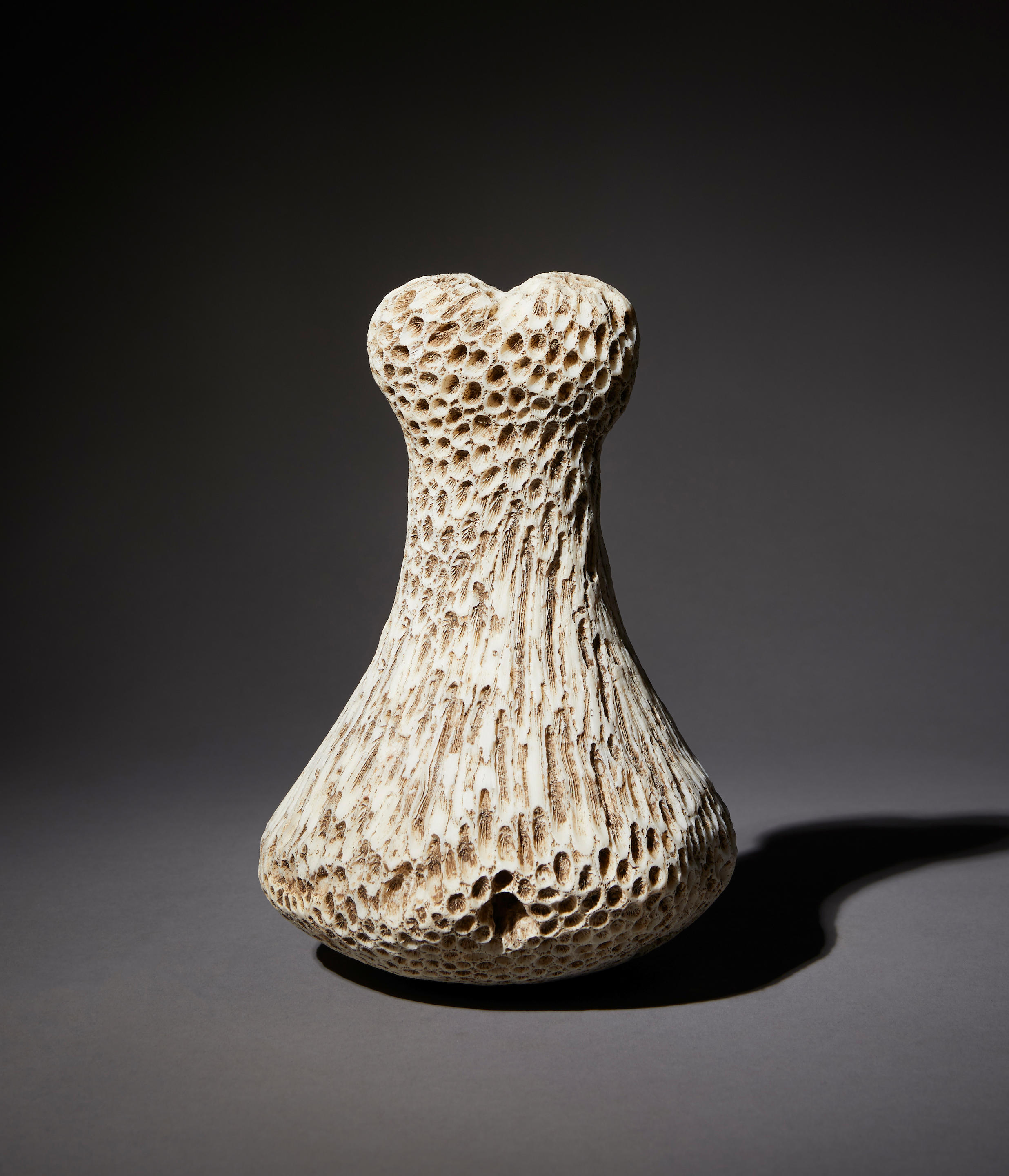


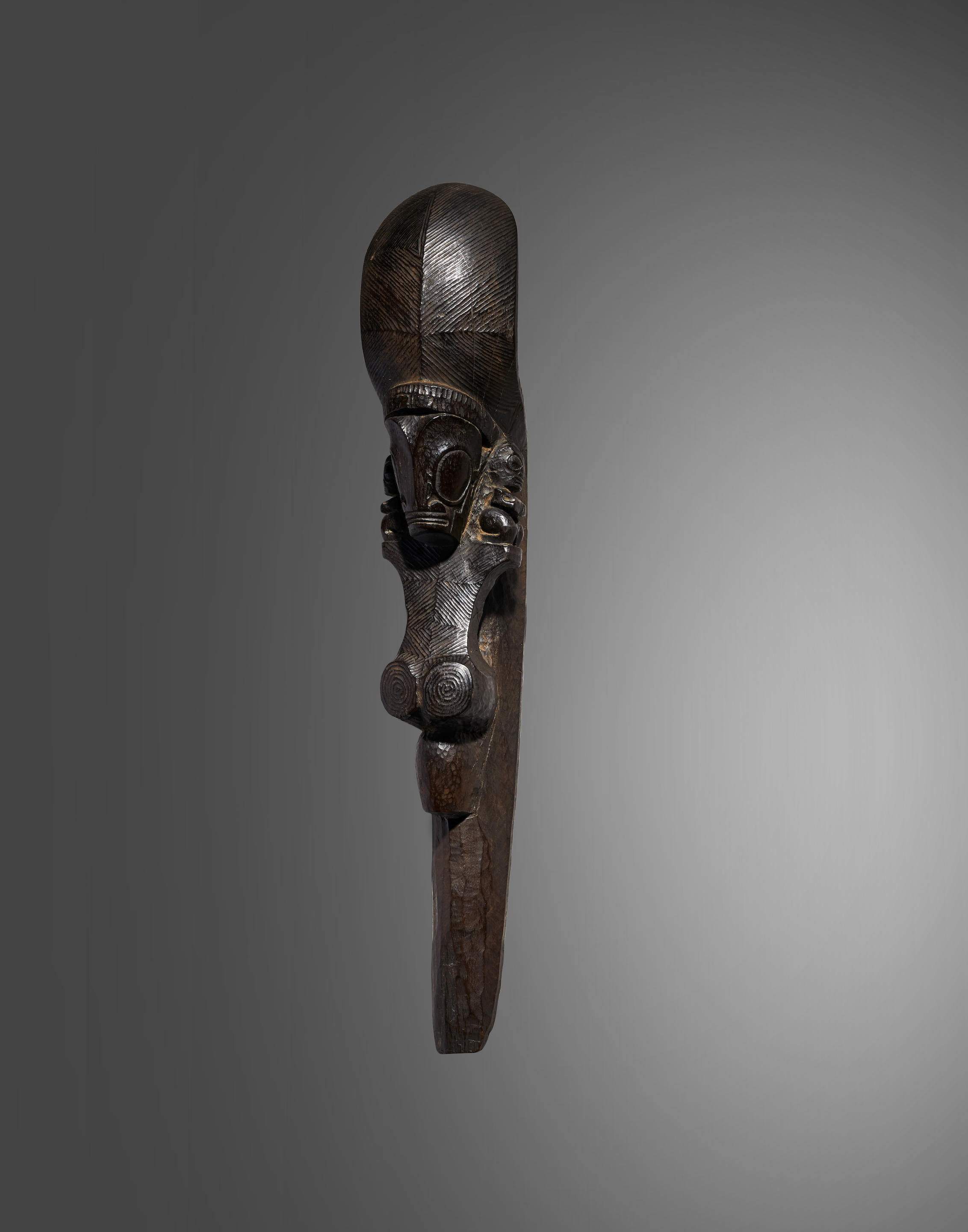
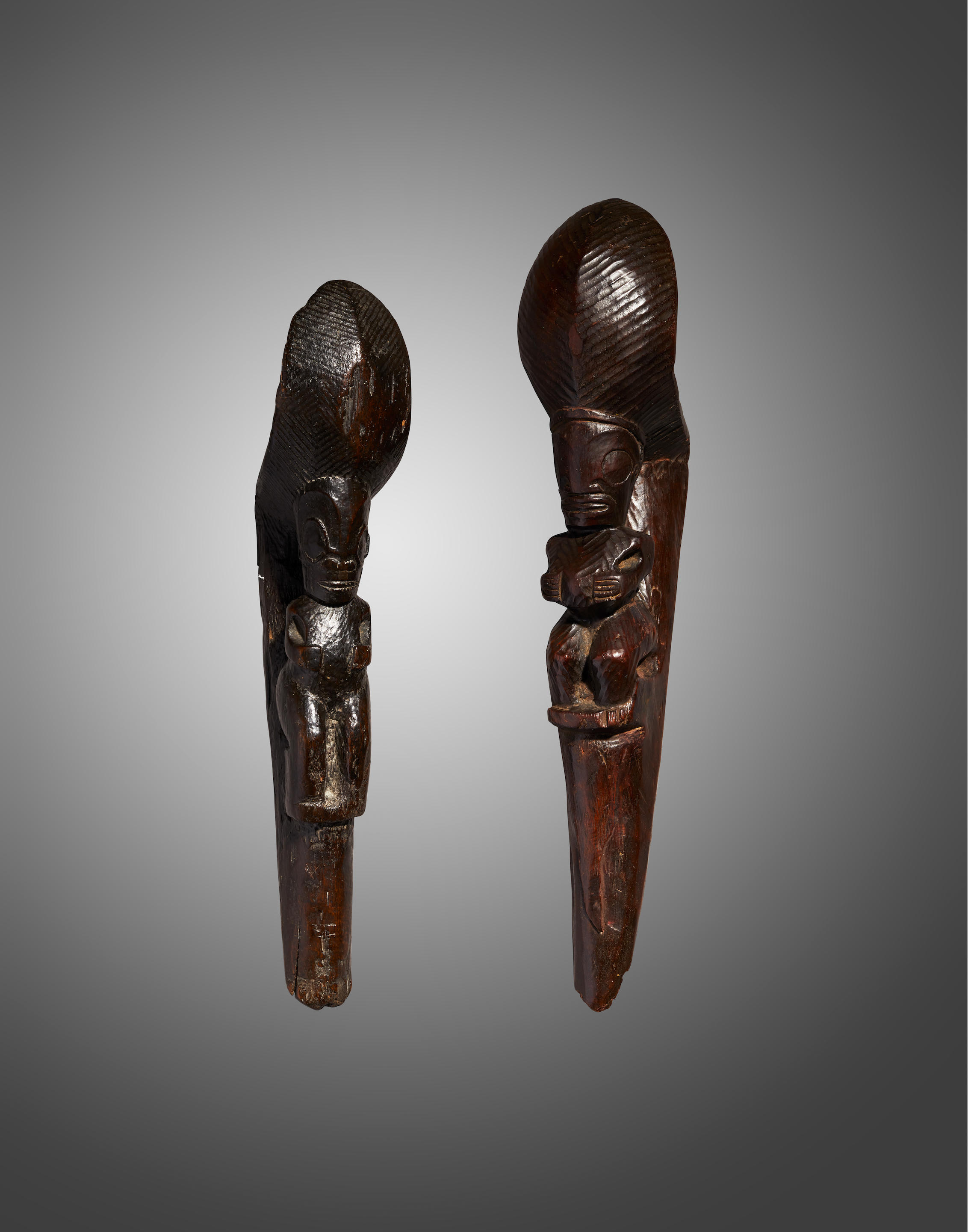
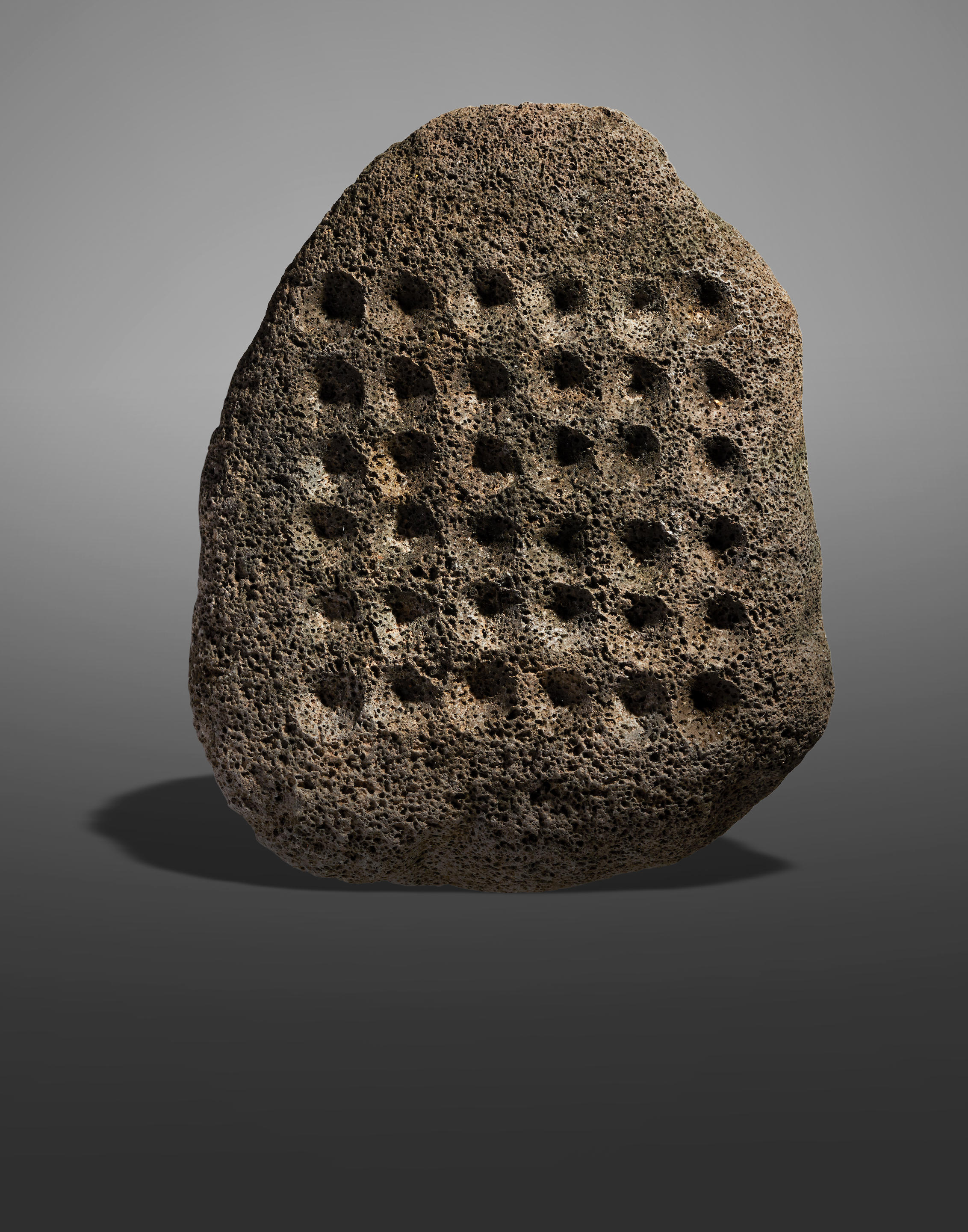
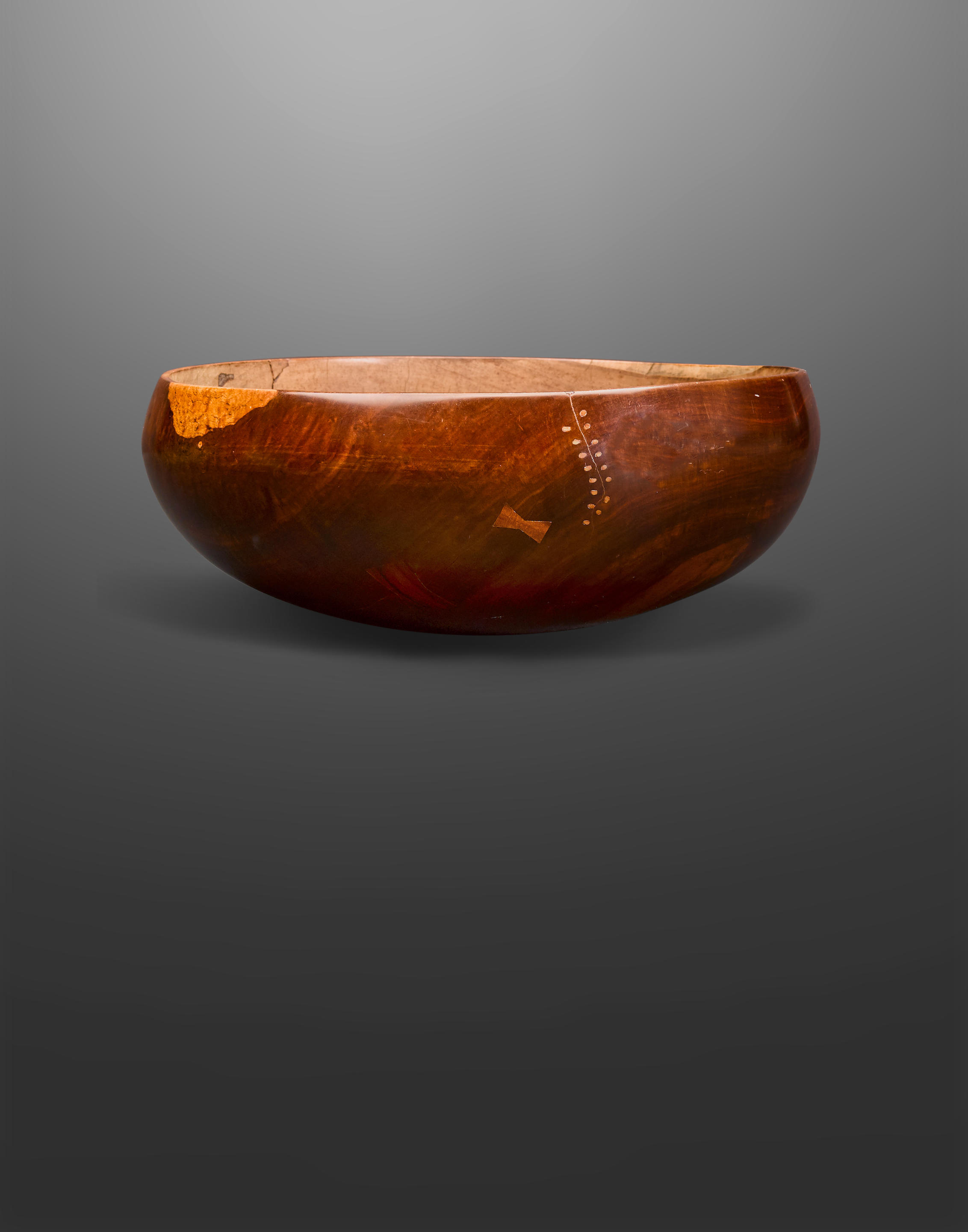
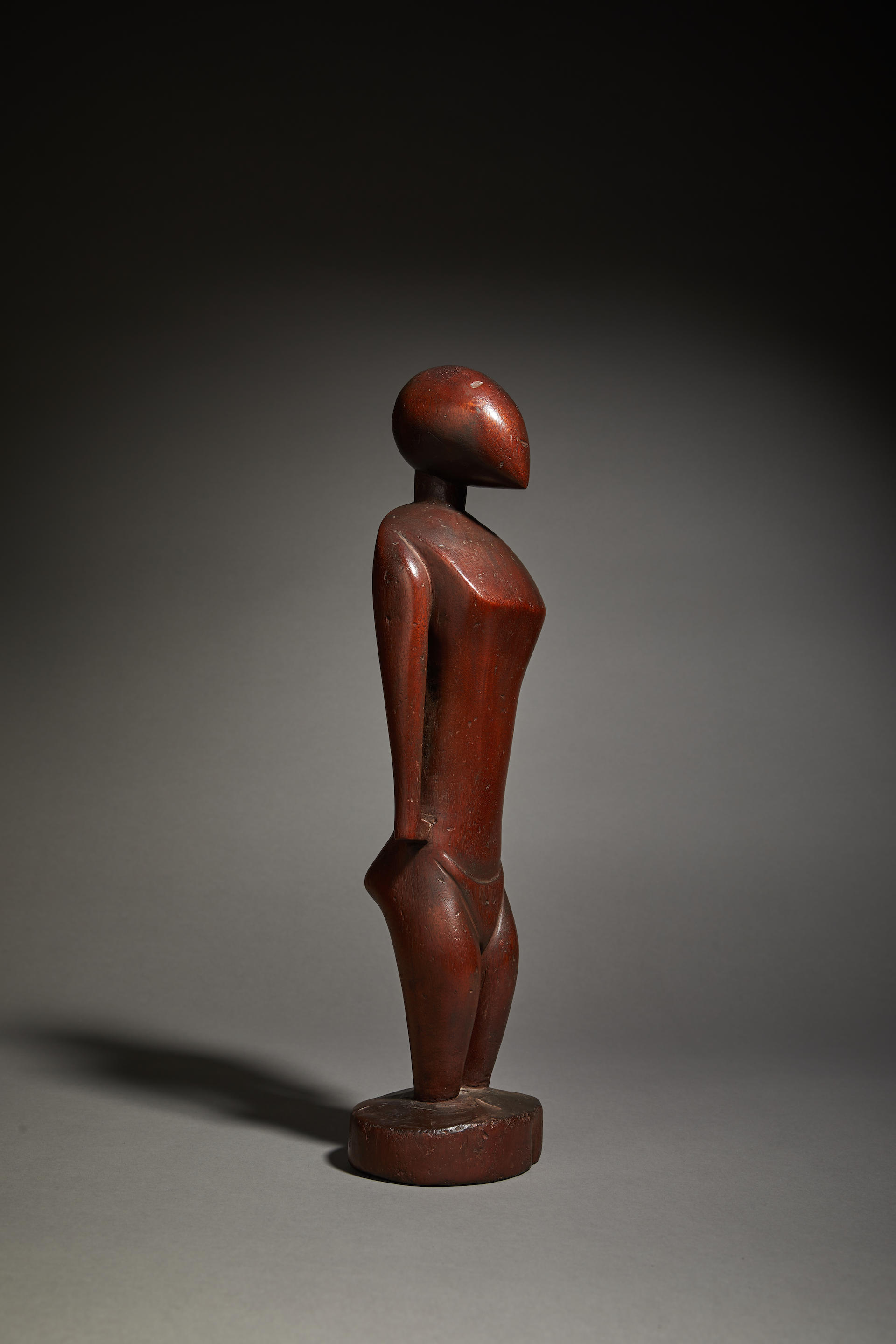
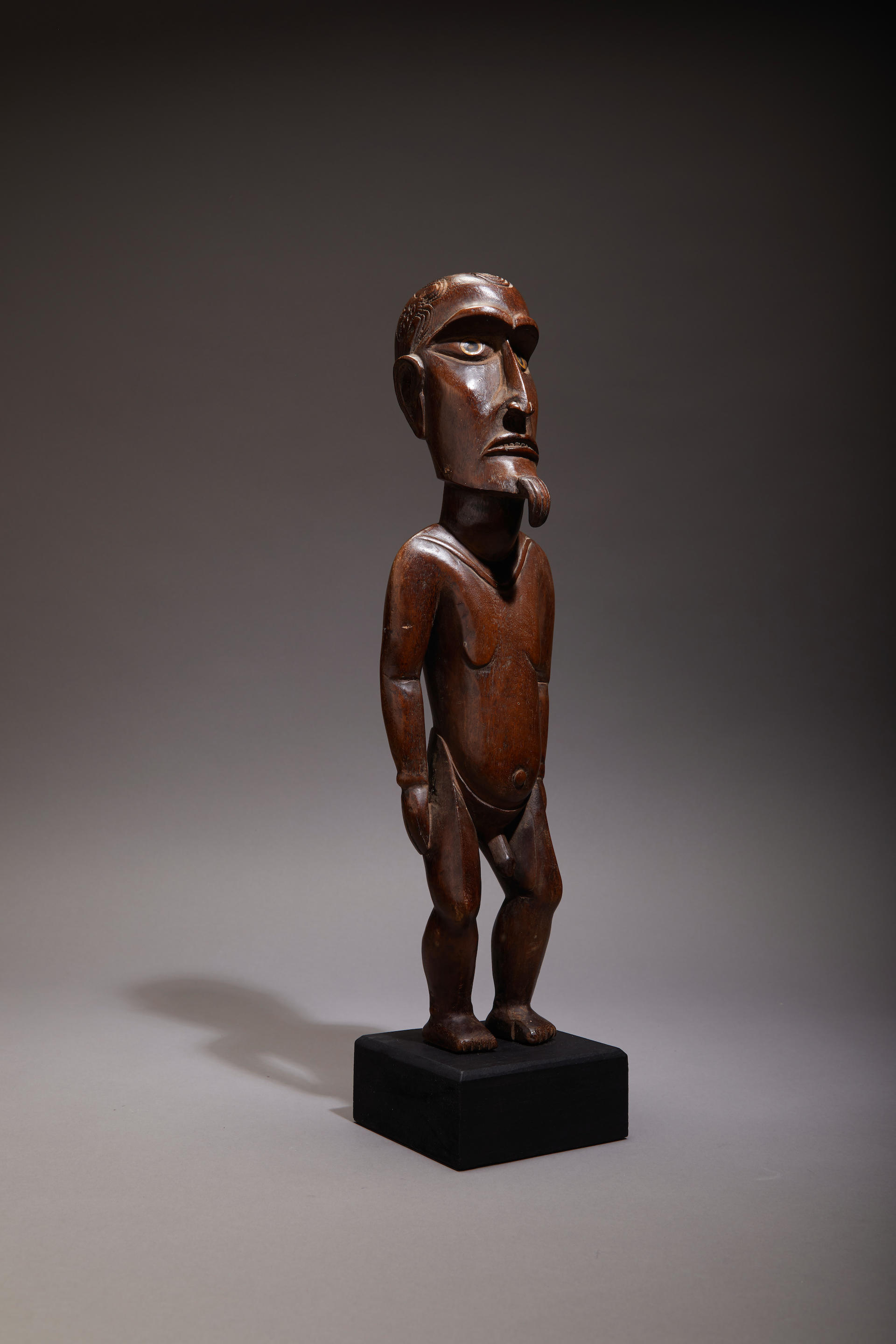
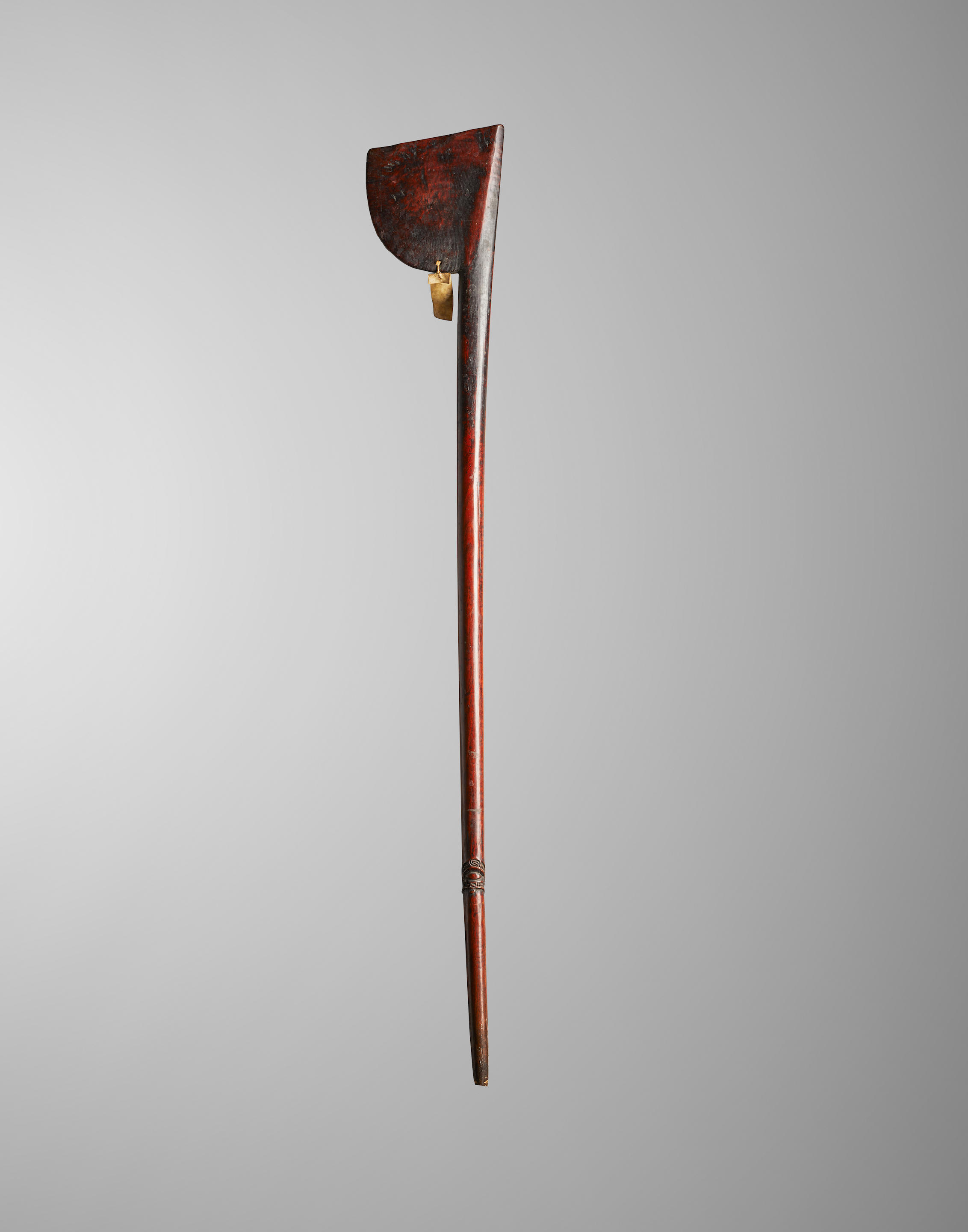
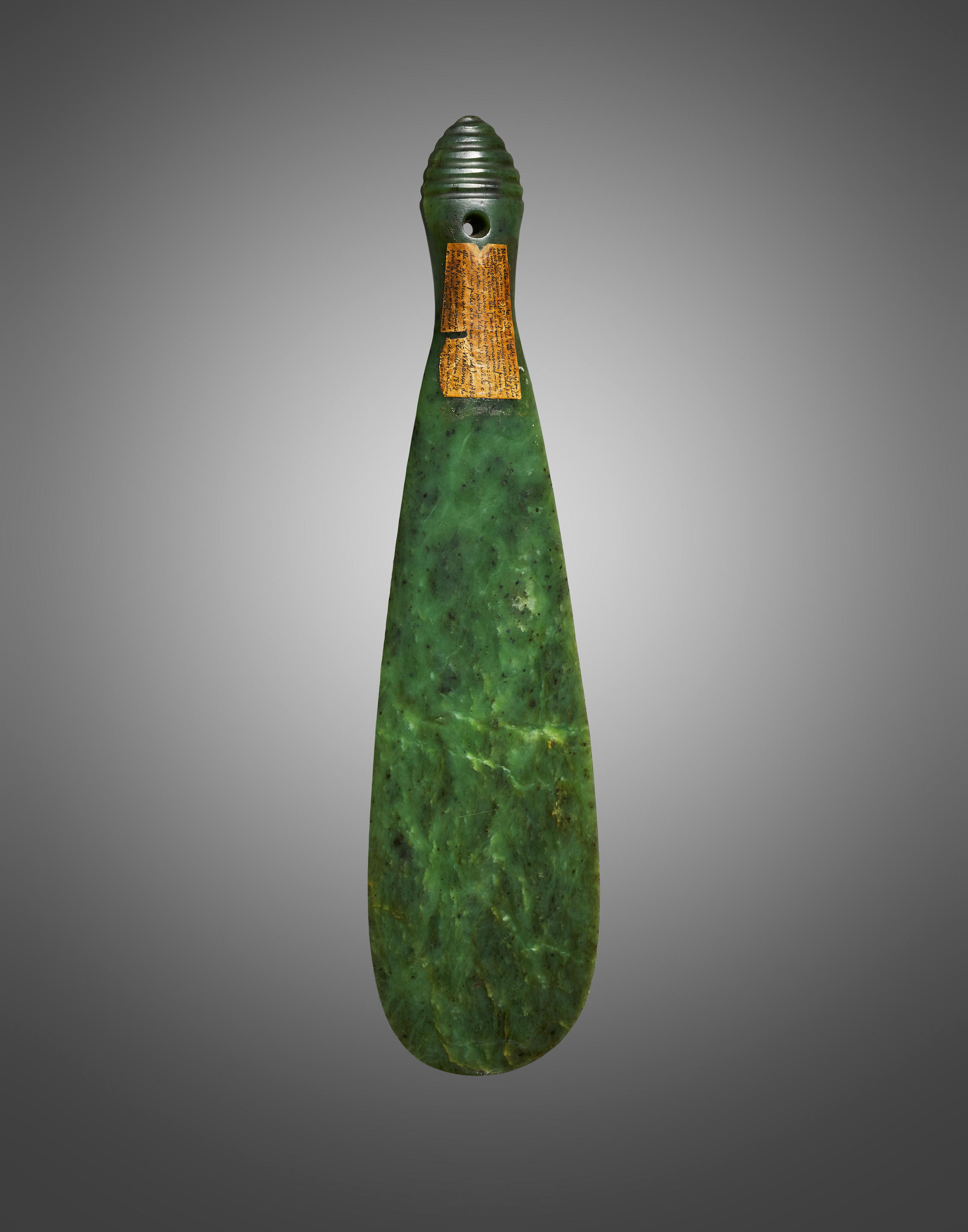
Testen Sie LotSearch und seine Premium-Features 7 Tage - ohne Kosten!
Lassen Sie sich automatisch über neue Objekte in kommenden Auktionen benachrichtigen.
Suchauftrag anlegen